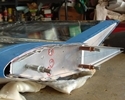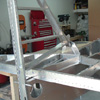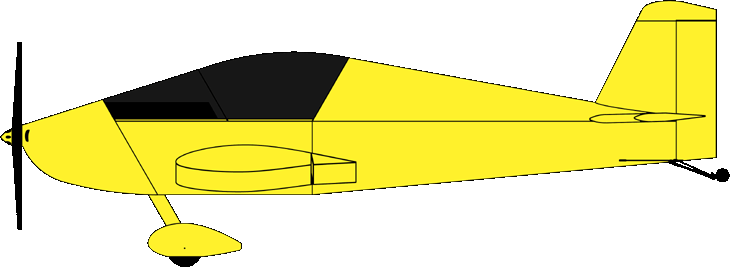


random user submitted photo
How well sorted is the Turbo now?
22 posts
• Page 3 of 3 • 1, 2, 3
Re: How well sorted is the Turbo now?
bvolcko38 wrote:Regarding oil pressure, I too, blew out my oil cooler in the first 3 seconds of my first engine start up. My second engine startup blew out my oil filter gasket. Later, I found, with a mechanical gauge, I was getting close to 200 psi of oil pressure! I went to the hardware store and found a similar sized, but much weaker oil pressure relief spring for the rear plunger. I now have about 90 psi at cruise. Still a bit scary with a cold startup ..180 psi till the oil warms a little.
BV
Bill - I believe you already blew 1 oil cooler? Per my earlier message, I highly recommend my oil cooler blowout thread, where I detail the whole saga for other folks to learn from.
When I started my engine for the first few times, I was too new to the Aerovee to understand how unusual high oil pressure is on these engines; and how indicative it is of a serious issue. Now I would consider anything higher than 70 PSI a sign of a serious problem!
In my case, the oil plungers slid just fine when I tested them during initial engine assembly. However they were definitely stuck after running the engine a couple of times, causing my oil pressure to be far too high. In researching and testing after my oil cooler popped, I now believe that anything over ~100 psi is likely to cause eventual cooler failure. They can contain a reasonable amount of pressure, but will eventually begin distorting and as the metal stretches it will fatigue and crack (especially in such a high-vibration environment). Mine failed during a brief ground run, and still made a mess. In-flight it would have been a very bad situation!
The oil cooler is fine for normal operations; but if you see high oil pressures (which I would define as anything above 70 psi), take it seriously and investigate the issue. Finally, remember that electrical oil pressure senders that are commonly supplied by Sonex, MGL, and others will only read up to 80psi. If you see 80psi on your EFIS, the _actual_ oil pressure might be a lot higher!
--Noel
P.S. Sorry for the slight thread-hijack; this isn't specific to the Turbo. However it does apply to all Aerovee engines, including the Turbo.
- NWade
- Posts: 527
- Joined: Mon Aug 08, 2011 3:58 pm
Re: How well sorted is the Turbo now?
NWade wrote:Sorry for the slight thread-hijack; this isn't specific to the Turbo. However it does apply to all Aerovee engines, including the Turbo.
Actually, it only applies to Aerovees with top-mounted oil coolers... For the bottom mounted oil coolers, the situation is worse since they are plumbed before any of the relief valves and the pressure sender. The pressure reading at the sensor is only a lower limit on what the pressure in the oil cooler itself is. It could be hundreds of psi if the oil is cold and you rev the engine, and you'd never know.
- lutorm
- Posts: 259
- Joined: Mon May 15, 2017 1:35 pm
- Location: The Island of Hawai
22 posts
• Page 3 of 3 • 1, 2, 3
Who is online
Users browsing this forum: petep and 52 guests







